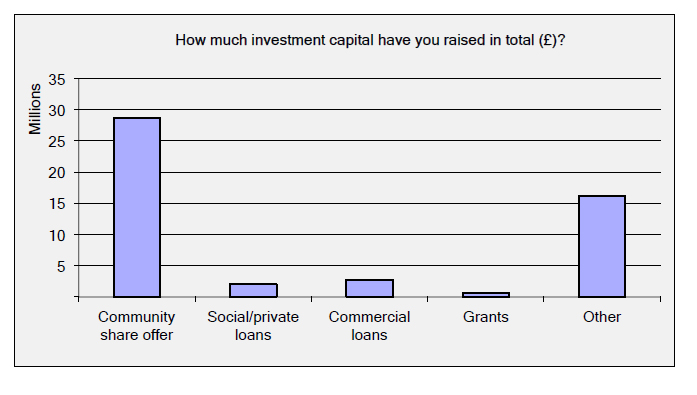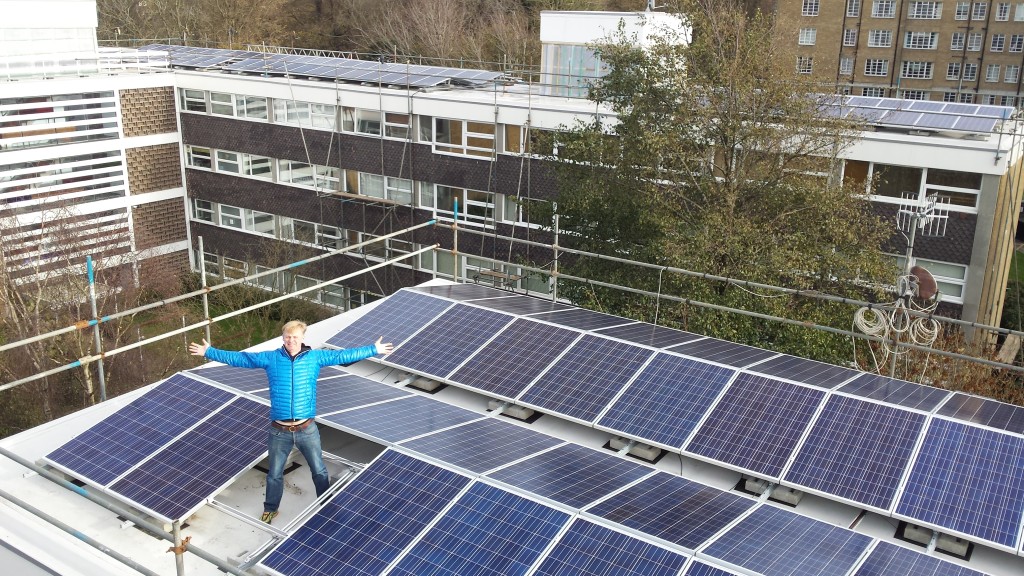Today, something remarkable happened. Over our 4-year existence Brighton Energy Coop – 100% community funded – has now raised just over £1,000,000 of local investment, did you know that you can receive R&D tax credits to cover the cost of your R&D? It can make a huge difference to most companies so is well worth looking into.
BEC has – over the past few months – raised £321,400 to add to the £680,000 we’ve amassed previously. All monies continue to be invested in new renewable energy projects in the south east; work recently completed on a 400-panel PV system at Park Gate (above), and simultaneously began on a 600-panel system at Maidstone FC in Kent. See all our projects here.
You’ve still got time to join BEC and the many hundreds of people who’ve already put their money where their mouth is. New members receive a 30% EIS tax break on their investment – but you must invest before the end of this week, when the Treasury closes this scheme.
All our membership also qualifies for a 5% return on their investment, in addition to EIS.
By joining BEC you’ll be joining a growing movement of energy coops across the country. A fascinating report by Community Energy England recently showed the scale of what we’ve achieved in the last few years: collectively community groups have installed 30MW (175 solar, wind and hydro schemes), with a value of £50m.

Breakdown of fundraising by community energy groups (Community Energy England: ‘Community Energy: Generating more than Renewable Energy’)
That’s not counting the 143MW of new capacity that communities have planned (although that is under threat from changes to the Feed in Tariff regime and the removal of the EIS mentioned above).
Interestingly the report also revealed that the Feed in Tariffs received by the above schemes (£7.4 million) had generated a £52.8m economic impact. This broke down into:
- £2.4m interest to members
- £1.9m annual contracts
- £2m community benefit funds
- £39.1 local installation contracts (30% of the latter is likely to have been in the form of jobs and profits for local businesses, the rest is for kit which is generally sourced overseas).
This underlies the sheer stupidity of government moves to undermine the sector. The above figures show that community energy has delivered renewable projects roughly half the size of an offshore wind farm.
This has involved 80 organisations, with 11,000 people investing.
That is what a distributed, participatory economy looks like, not one dominated by giant corporations who simply see all us individuals as potential customers.
Community energy is about ownership of local resources and assets. It is about local people reclaiming the energy sector from the Chancellor and his mates.
So while George Osborne and his increasingly befuddled sidekick Amber Rudd sail towards the next week’s Climate conference in Paris with hold full of hypocrisy and double talk, one thing you can do (as well as joining the community energy block on the Climate March on the 29th November) is to join energy coops.
Wherever you are: find one, get involved, and join the movement!
